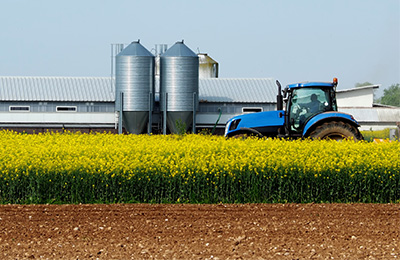Simultaneous optimization of biofuel supply chains and bioenergy landscapes
 Project Description
Project Description
The large-scale production of advanced biofuels produced from renewable, non-food plants will require extensive landscape changes to produce a significant amount of biomass from dedicated energy crops. Additionally, an efficient supply system from field to product is needed to offset the characteristics that make biomass a difficult energy feedstock, such as its low density, uneven and widespread spatial distribution, and seasonality. To address these intertwined challenges, researchers are designing models to optimize the establishment and management of dedicated energy crops, and the design and operation of the biofuel supply chain, simultaneously. These large-scale, integrated, and flexible optimization models will help researchers analyze the effect of system uncertainties, the tradeoffs between the economic and environmental outcomes from producing biofuels, and how sensitive the system is to key parameters. This project is funded by the Great Lakes Bioenergy Research Center, a U.S. Department of Energy-funded Bioenergy Research Center established in 2007 and led by the University of Wisconsin–Madison.
Researchers
Christos Maravelias; Eric O’Neill